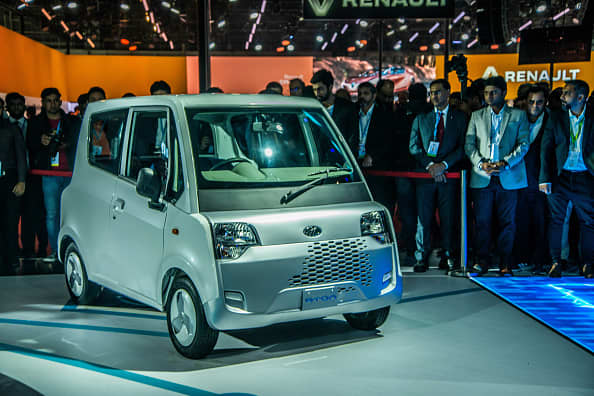India’s Mahindra Group expects 50% of vehicles sold by 2030 to be electric, CEO says

Indian automaker Mahindra & Mahindra expects half the vehicles it would sell by 2030 to be electric, the company’s managing director and CEO told CNBC on Friday.
The market for battery-powered vehicles in India is still at a nascent stage. For example, India’s largest automaker, Maruti Suzuki, does not sell an electric vehicle at the moment, citing the current high costs associated with owning one.
“Electric vehicles in India are, I would say, a few years behind some of the other countries, largely because of the fact that in India, it’s difficult to provide incentives for cars — it’s a luxury item,” Anish Shah said during a panel at CNBC’s Sustainable Future Forum.
As most Indians do not own cars, providing subsidies or lower taxes to encourage switching to electric cars is unlikely to work the same way as it would in other countries, Shah explained. Plus, a lot of the incentives available are comparatively lower than what other countries are offering for the switch. “That will result in a slower adoption but at the same time, it’s here to stay,” he said.
India is also a cost-conscious market where people tend to opt for cheaper options. That means the cost of owning an electric car has to be on par with or cheaper than owning a combustion-powered car.
Factors that can drive EV adoption
Shah pointed out three factors that would drive electric vehicle adoption in India.
First, the cost of ownership has to come down through short-term subsidies and longer-term production efficiency. It is already happening in certain segments of the auto market, according to Shah.
“What we’re seeing today is for three wheelers, electric vehicles are at cost parity – they have enough range and there is infrastructure as well,” Shah said, adding they are “starting to take off very rapidly. Four wheelers are going to be a little slower but it’s again here to stay.”
“And we would expect about half our vehicles sold by 2030 to be electric,” he said.
Mahindra already sells several three-wheeler and four-wheeler electric vehicles in India, where the market for battery-powered cars is still at a nascent stage.
Three-wheelers are a popular mode of transport in many Indian cities, often serving areas that are not covered by buses, taxis and trains — many of them are also powered by batteries.
Having enough charging and related infrastructure as well as ensuring that electric vehicles can cover sufficient range on a single charge would also drive greater adoption of battery-powered vehicles, according to Shah.
Expectations from COP26
The move toward electric vehicles is part of global efforts to combat climate change.
World leaders and environmentalists will be meeting in Glasgow, Scotland — from Oct. 31 to Nov. 12 — in a bid to hash out a climate change deal at the COP26 climate change conference.
When asked what Shah expects from policymakers he said they need to step up their support in the development and deployment of new technologies that can reduce carbon emissions in the atmosphere at a faster pace.